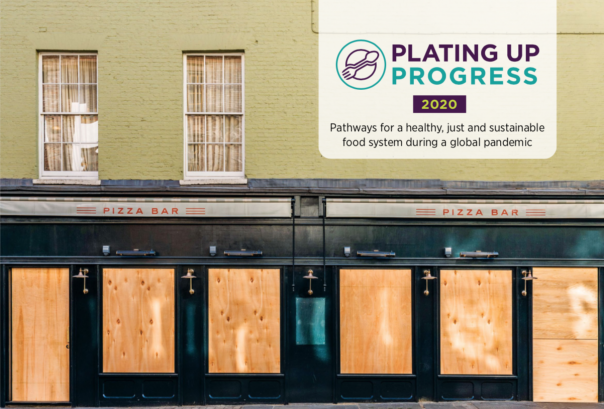
In light of the findings the food and health policy charity is calling on food businesses to set targets for shifting revenue towards producing and selling healthier and more sustainable food.
It wants reporting on these targets to be made mandatory by policymakers and for investors to include performance against these targets as part of their engagement and investment strategy.
The Plating Up Progress 2020 report says only four 4 of the 11 supermarkets have set targets to report on percentage sale of healthier options, fruit and veg or plant-based products.
Of the major restaurants and caterers analysed, only 20% have published targets or data on either the percentage of food sales that are healthy or increases in fruit and veg sales.
Anna Taylor, executive director of the The Food Foundation said: “The challenges we face are formidable and understanding the progress food companies are making and what targets they are setting is key.
“We need clear direction from both investors and government to demand that companies report on these metrics if we are to see lasting change and if those companies with more ambitious health and sustainability commitments are to flourish.”
The Plating Up Progress 2020 report also looks at the impact of the pandemic on the industry and lays down some key actions for food businesses, investors, and government towards both economic recovery and sustainability post-Covid-19.
The assessment highlights where food businesses are failing to set targets and report on performance against them, but also includes examples of current best practice that should be adopted across the sectors.
The report and accompanying dashboard maps out the current commitments, targets and performance reporting of 26 major UK food businesses.
Although it found only 4 of the 11 supermarkets have public targets on the health and sustainability of their food, it does highlight leadership examples in the field, including Sainsbury’s and Marks & Spencer’s commitment to reporting the percentage of sales that comes from healthy products.
The report finds that, of the major restaurants and caterers analysed, only three out of 15 have public targets or data available on either the percentage of food sales that are healthy, or report on fruit and veg sales.
None of the companies have clear published targets or data for increasing sales of plant-based proteins, although several are introducing new menu options as alternatives to meat.
Only 30% of major restaurants and caterers have any publicly available data on their scope three greenhouse gas emissions (relating to food production in their supply chains) which is of particular concern, considering that food and agriculture accounts for around 30% of all global emissions.
The report does however highlight good practice and leadership qualities from companies such as Greggs and Sodexo (UK and Ireland) who are providing data in their corporate reports on increases in sales of veg. Sodexo, Mitchells & Butlers and Whitbread are also shown to be now including scope three greenhouse gas emissions within their overall climate change reporting.